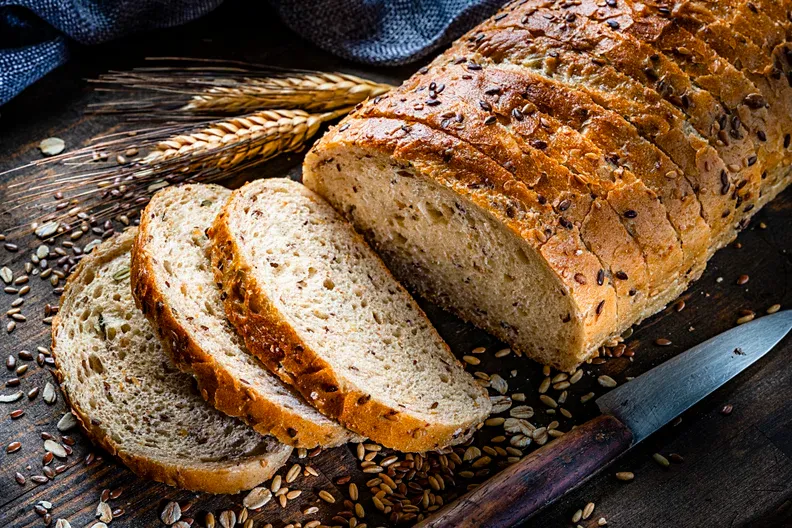Healthiest Bread To Eat?

According to dietitian Natalie Mokari, bread is a food that is both enjoyable to eat and frequently criticized for its lack of nutritional value. Some diets even promote the complete elimination of bread and other carbohydrates.
Natalie Mokari shared that many of her clients believe that they should avoid consuming bread, which she finds disappointing as bread is an excellent source of whole grains
Mokari emphasized that bread can be included in a well-balanced diet, and carbohydrates play a crucial role in maintaining good health.
A 2017 study suggests that consuming two to three servings of whole grains per day, such as those found in bread, may help prevent several diseases, including type 2 diabetes, cardiovascular disease, and certain types of cancer, including colorectal, pancreatic, and gastric cancers. Therefore, it could be beneficial to include bread in your diet to increase your intake of whole grains.
Mokari stressed the importance of carbohydrates in our diet, stating that they are essential for proper bodily function and serve as a primary energy source for the brain. Without sufficient carbohydrates, one may experience symptoms such as sluggishness, brain fog, and a lack of energy.
When seeking the healthiest bread options, it is crucial to consider various factors, such as the type of bread you purchase, the foods you consume with it, and your overall relationship with bread.
Are white, wheat, sourdough breads healthy ?
Steph Grasso, a dietitian and TikTok content creator based in Washington, advises that the most nutritious type of bread depends on your health goals. Therefore, it is crucial to define your specific dietary needs when selecting a type of bread.
Wheat breads typically provide a higher amount of vitamins, whole grains, and fiber than other types of bread. It is more beneficial for individuals with insulin resistance or those seeking to regulate their blood sugar levels.
According to Mokari, some individuals may have a personal preference for white bread, and she suggests that they should feel free to consume it if it aligns with their dietary preferences and needs.
For individuals who have concerns about their gut health or desire the taste of white bread but with less refining, Mokari recommends trying sourdough bread as an alternative option.
Sourdough bread undergoes a fermentation process, which can be beneficial to the gut microbiome. Additionally, slow-fermented sourdough bread may be easier to digest for individuals with gluten sensitivities.
Aside from the type of bread, Mokari suggests considering the making of the bread. It is important to look for bread that contains simple ingredients such as flour, water, salt, and yeast. This is especially important because bread products can sometimes contain high levels of sugar and sodium.
Grasso advises that for individuals seeking more fiber in their bread, whole grain bread is the better option. To ensure that the bread is truly whole grain and avoid misleading labels, it is important to check the list of ingredients, as the first word should be "whole".
For individuals seeking to add a little extra fiber to their diet, bread with seeds in the crust is a good option to consider.
Buyinh bread from local bakeries can be beneficial in finding high-quality and fresh bread made with simple ingredients she added.
For diet or low-carb breads, she explained that it typically contains added and unnecessary ingredients to improve their taste.
Healthy Fats and protein to your bread ?
People rarely eat bread alone. According to Mokari, bread can be incorporated into a well-balanced meal by pairing it with healthy fats and proteins.
Adding healthy fats and proteins to your breakfast by pairing toast with foods such as eggs, avocado, or peanut butter is good for you.